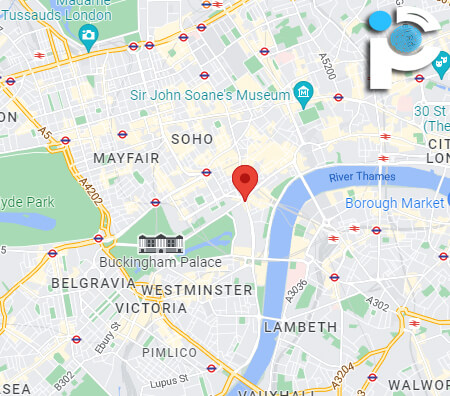Can Private Investigators Trace IP Addresses?
January 13, 2023 - Reading time: 8 minutes
Updated on: September 4, 2025
As a leading UK detective agency, we are often asked whether private investigators can trace IP addresses. From debtor tracing and fraud investigations to online harassment and catfishing, clients sometimes only have a handful of digital clues. The reality is that an IP address on its own is a weak identifier, but it can be useful when combined with other data in a lawful open source intelligence (OSINT) investigation.

Tracing IP addresses using data leaks and OSINT
Sometimes an IP appears in a public data breach or archived log, alongside an email, username, or name. In those cases we can connect the dots. We also look at:
- Press and forum archives that reference the IP
- Historic server or paste sites that list IPs with usernames
- Social media posts or profiles that expose network details
- Marketplace or gaming handles tied to the same IP
Shared or dynamic IPs, mobile carrier NAT, and cloud hosting often muddy the water. OSINT can surface leads, but attribution must be handled carefully and lawfully.
Subscriber data and legal disclosure
Subscriber details - the name and address behind an internet connection - are held by the ISP and are not available to the public or to investigators. To lawfully obtain them you generally need a court order or solicitor led disclosure in a civil matter, or a police request in a criminal case. We can assess whether your facts support legal escalation and coordinate with your solicitor if appropriate.
VPNs, proxies and Tor
If a user routes traffic through a VPN, proxy, hosting provider, or Tor, the IP usually points to the service, not the person. Some providers keep logs for a limited time, others do not. Without logs and a lawful disclosure route, precise attribution is unlikely.
Tracing someone from a phone number
Phone numbers are often more promising than IPs. Clues may come from:
- Carrier and number format lookups
- Reverse searches on classifieds, marketplaces, and review sites
- Checks against leaked credential sets and scam reports
- Profiles on messaging apps where privacy settings are open
Tracing someone from an email address
Email addresses tend to leave stronger trails:
- Handles reused on social networks and forums
- Avatars or profile pictures repeated across platforms
- Breaches linking names, phones, or partial addresses
- Domain registrations tied to that email
What an IP address can usually show
- Approximate city or region
- Country
- Network or ISP name (BT, Virgin, EE, AWS, etc.)
These are useful context markers but rarely enough to identify an individual without more evidence.
IP addresses vs GPS location tools
Some websites claim to offer precise GPS coordinates from an IP address. In reality they often just return the centre of a city or the ISP’s office location, not the user’s house. For example, a London IP might show Trafalgar Square coordinates, even if the person lives in Croydon or Camden.

Image: GPS coordinates 51.5072° N, 0.1276° W - often shown as a default ‘London centre’ pin. Credit: Google Maps
To trace an IP to a specific address, subscriber data from the ISP is required - and only law enforcement or solicitors with court approval can obtain it.
How we approach IP-led investigations
- Check if the IP appears in public breaches or archives
- Cross-reference against emails, phone numbers, and usernames
- Review whether facts justify legal disclosure via a solicitor
- Prepare clear, documented reports for court or police use
Need help tracing someone online?
If you’re dealing with fraud, harassment, or anonymous activity, we can assess what you have and explain realistic options. For a confidential consultation, get in touch with our team. We operate UK-wide and can assist internationally where required.
You are reading the PrivateInvestigators-UK blog — home to the UK's leading detective agency. Learn more about us by visiting our homepage PrivateInvestigators-UK.com.